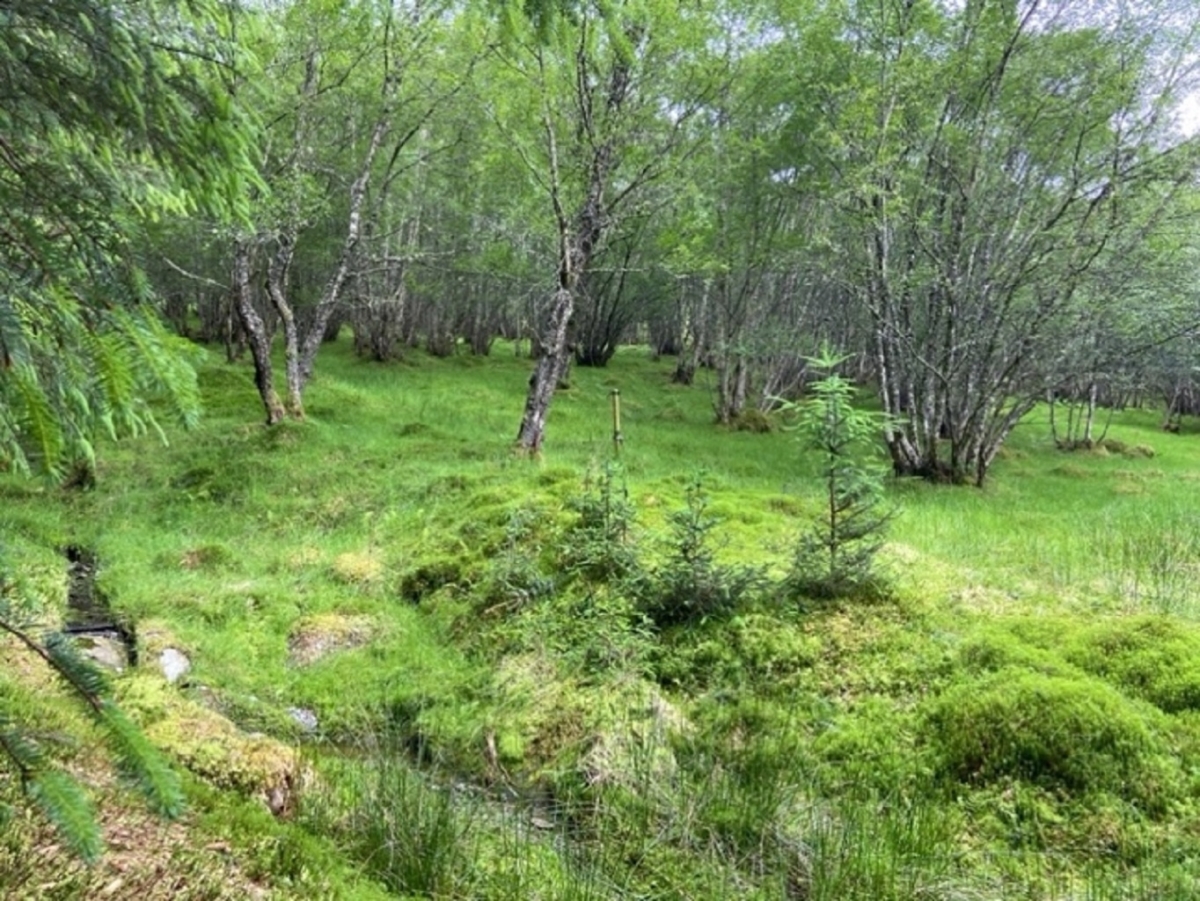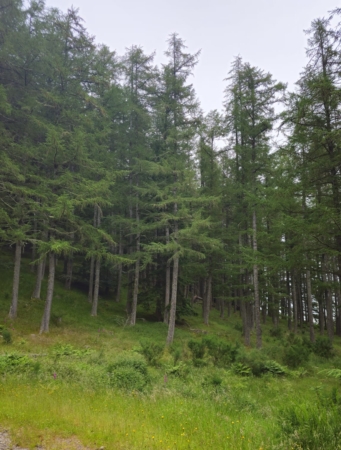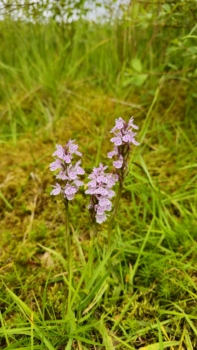From Urgency to Participation: Navigating Complexities in Nature Recovery in the Scottish Highlands

Scotland is at the forefront of ambitious nature recovery efforts. Key policies, such as the Scottish Biodiversity Strategy and Nature Positive Scotland, alongside initiatives such as Scotland: The Big Picture and Rewilding Nation reflect a strong commitment to large-scale restoration. Additionally, the growing role of harnessing private finance in natural capital approaches, whose importance is reflected in the Scottish Natural Capital Market Framework, is shaping how some of these projects are funded.
The Scottish Highlands, often seen as a “wild” and uninhabited landscape, are a prime focus of large-scale land restoration. However, some initiatives have faced criticism of “green lairdism”, or perpetuating similar patterns of top-down control reminiscent of the Highland Clearances that occurred between 1750 and 1860.
This research explores how participation is framed and experienced and how particular strategies for governing nature recovery influence democratic participation and local community engagement. Based on interviews with diverse nature recovery practitioners and community groups in the Central Scottish Highlands, the dissertation shares a key message to key actors and experts in promoting nature’s recovery: against a backdrop of urgency to respond to climate and biodiversity crises, it is crucial that nature recovery efforts are also able to slow down to embrace genuine participation.
The research prioritized a collaborative and participatory approach, working alongside Dr. Caitlin Hafferty, another MSc student, Colombe Stevens, with support from a broader Leverhulme Centre for Nature Recovery project on participatory governance. This ensured that the MSc research was not an isolated study but contributed to a longer-term work which aimed to develop lasting relationships with participants and positive impacts beyond academia, offering a more place-based and participatory approach to research.

A novel part of the methodology was co-interviewing, where multiple researchers participated in interviews, and joint interviewing, where multiple participants were interviewed together. This approach helped mitigate research fatigue, which has been identified as a growing issue in the Scottish Highlands, where local communities and practitioners often feel overburdened by extractive or ‘helicopter’ research that takes up participants’ time without tangible benefits in return. To help mitigate these issues, the research team integrated co-interviewing methods within a participatory approach to reduce time demands on participants, sought to give back by offering ‘time for time’ (e.g., the research team providing useful insights and resources for participants, as well as participants giving their own time and expertise), volunteering with local nature recovery projects (such as helping to clear bracken in a community forest), and sharing early reflections on emerging research findings.
Overall, the dissertation project reflected on the tensions that emerge when the interlinked biodiversity, climate and human well-being crisis is framed primarily through urgent timescales and a purely scientific and technical lens, overlooking key social dimensions such as community engagement, participatory governance and equity. The research identified the following tensions:
- Tensions between the urgency to respond to the climate and biodiversity crisis and the slower, more deliberate processes required for meaningful participation as part of a “just transition” through nature recovery. This can restrict the time required for genuinely participatory and democratic governance, generating a “post-political” condition where truly democratic processes are limited in favour of consensus and scientifically driven decisions that are perceived to contribute to faster acting change. This can lead projects to prioritise certain types of scientific expertise over local and place-based knowledge, and to view participation as messy, complicated, and delaying important rapid progress.
- The drive for harnessing private finance for nature recovery through market-led mechanisms increases the focus on quantifiable measurements of landscapes (such as biodiversity and carbon credits), which risks promoting narrow economic assessments of landscapes at the expense of considering broader, less tangible social benefits and power dynamics. Smaller-scale and community-led initiatives can also have a harder time tapping into private finance mechanisms, creating an imbalance in access to resources.
- Varied interpretations of what participation means in theory versus in actual practice in nature recovery projects. While nature recovery efforts often claim to provide benefits to local communities, underlying factors – including instances of tick-box community engagement and patterns of concentrated landownership with narrow or single visions of the landscape – risked limiting truly meaningful participatory governance. Some nature recovery initiatives were moving away from the term “rewilding” due to perceived connotations with increasing historic patterns of top-down, concentrated land use governance.
Top-down and science-driven approaches to nature recovery are important and not inherently negative. However, they can become problematic when they overshadow alternative and community-led strategies. When one approach to nature recovery is prioritised, this can risk excluding local voices, reinforcing power imbalances, and limiting long-term engagement. However, these approaches do not have to be at odds. Stronger partnerships between technical experts and local communities can create more inclusive, effective, and lasting nature recovery efforts. Collaborative models, such as partnership working, community benefit-sharing, and collaborative natural resource management can help bridge the gap between large-scale initiatives and grassroots efforts.
This dissertation project highlighted issues that need careful consideration in nature recovery projects and also identified clear, hopeful pathways for the future. Networks such as the Community Landownership Academic Network (UHI CLAN) show how collaboration can strengthen research impact, making findings more accessible and useful to practitioners, policymakers, and local communities. In addition, the Scottish Government issued the Land Rights and Responsibility Statement (LRRS) urging for collaboration regarding decision about land. Similarly, the Scottish Land Commission plays a key role in addressing land reform challenges in Scotland, for example landowners can sell land to community groups (such as the Glengarry Community Woodlands), participate in delivering community benefits from the land and be transparent about their decision making protocols and land use.

For nature recovery to be just and equitable, landowners, project managers, scientists, and other key decision-makers must pause to reflect on whether fast-faced, urgency-driven solutions are always needed, and what impact they have on the consideration of alternative approaches. While urgency is often emphasised in the face of climate and biodiversity crises, the findings of this study suggest that slowing down, taking the time to foster relationships, and embracing genuinely democratic processes is crucial for effective, long-term impact.
True participation is not just about inviting interested groups to the table but requires a willingness to embrace disagreement and move beyond rigid, top-down approaches that can focus on representing “single visions” of a landscape. Key actors in nature’s recovery must be willing to embrace multiple perspectives, disagreement, and embrace messy participatory processes as an essential part of the solution.
As Strengers and Muecke (2018 p.120) comment, it is important for “scientists to accept that which is messy is not defective but simply that which we have to learn to live and think with”.
For questions or to request a copy of the dissertation, please contact Allegra Bundy (allegra.bundy@gmail.com) and Caitlin Hafferty (caitlin.hafferty@ouce.ox.ac.uk).






